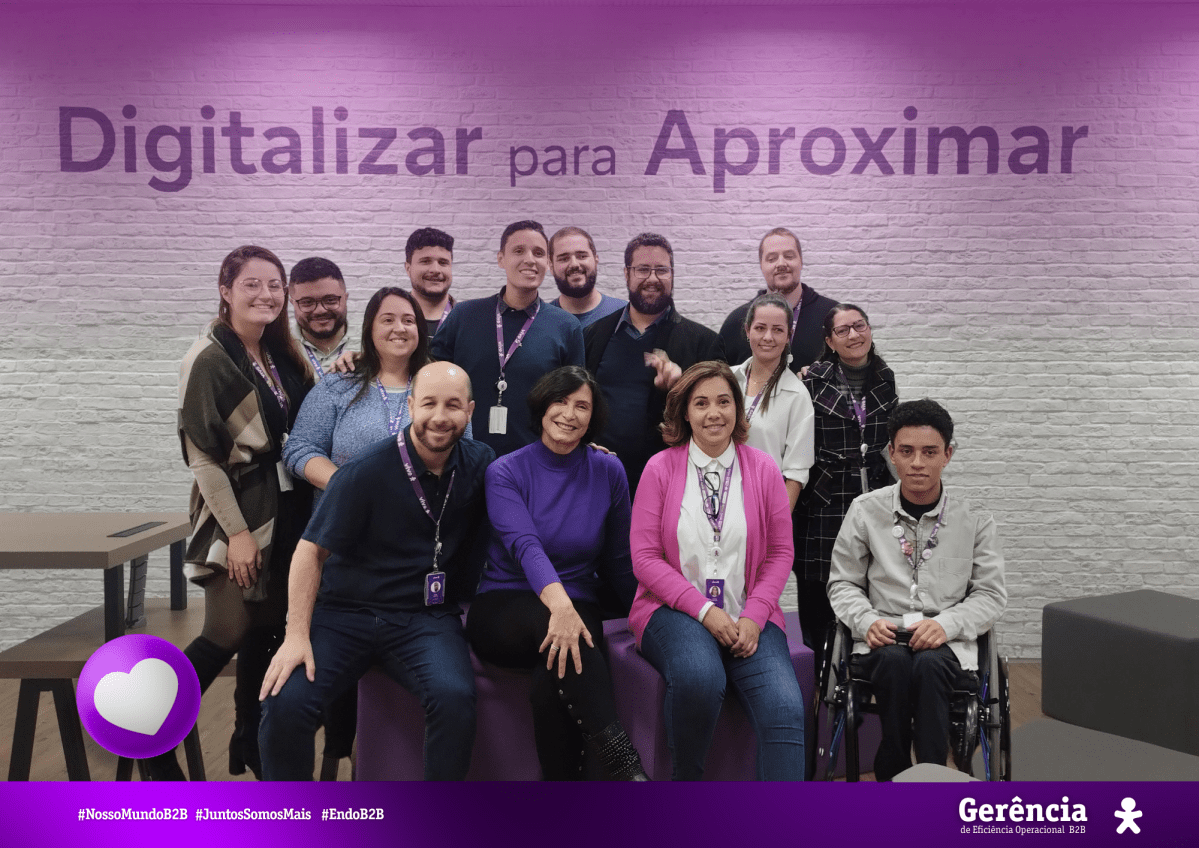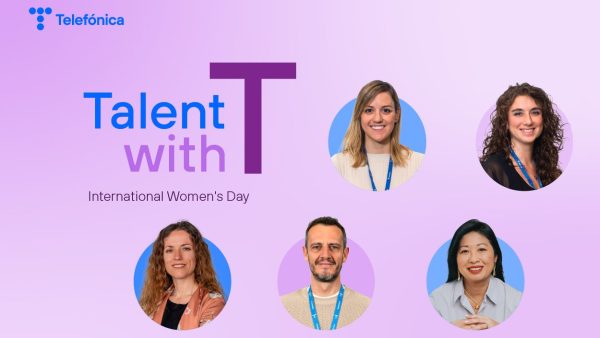Awareness raising and other strategies still need to be strengthened to broaden inclusion and diversity with equity in companies. This is a painstaking process, as there is a wide range of impairments, including physical, mental and sensory. Each presents its own range of challenges, and companies need to be prepared to deal with them. In addition, people with disabilities often face additional barriers related to lack of access to adequate resources, as well as difficulties related to access to education.
According to the General Registry of Employed and Unemployed (Caged), although the hiring of people with disabilities in Brazil is on the rise, there is still a negative balance between hiring and firing for this population. However, there are companies willing to change this scenario, such as Telefonica Brazil (Vivo), which has been, and is, an example in the inclusion of people with disabilities in the labour market.
Vivo and I: a story of inclusion
In January 2022, I had the opportunity to join the PCD en Vivo cadre of supporters. Ten years ago I had a disease that calcified the inner bones of my ears, leaving me without proper hearing. Since then, I have found it difficult to enter the job market. However, Vivo was a company that from the beginning facilitated the whole process of labour insertion and what surprised me the most was the size and quality of the ecosystem that Telefónica Brazil has been building to include people with disabilities in the labour market.
Vivo and the market: an example of inclusion for other companies
At Vivo there are many actions, projects and initiatives focused on creating a plural, diverse and inclusive company, giving real opportunities for all people to have access to the functional framework of the company. The employees are supported by Ricardo Miras, director of customer experience B2C, who is voluntarily the sponsor of the pillar of people with disabilities, who have an internal programme called Vivo Diversidad. Vivo’s great differential, moreover, is the strong commitment of its leaders. All leaders must be prepared to welcome these people and seek to treat them well. This creates a more humanised and inclusive work environment.
The company also excels in its recruitment processes, something that is not done just to meet quotas. From the moment a person with a disability joins Vivo, the leaders are always ready to support them and help them develop and grow in the company.
In my specific case, I was hired to work in the B2B customer experience area, led by Andre Garcia, a senior manager who stands out for his humanised leadership. Garcia takes the time to guide employees on an individual basis, and his approach has given me a lot of professional and personal insights. As I mentioned earlier, Telefónica Brazil’s big differential is the strong commitment of its leaders and I already saw that at the front door, when I had a first contact with my “Operational Efficiency” work team led by Maryelen Carvalho, a woman who stands out for her dedication to create an inclusive work environment and seeks to make differences work together.
I invite you to participate in all this
The inclusion of people with disabilities is fundamental for the construction of a fairer, more egalitarian and plural society, Telefónica Brazil understands this and is a company that is making a difference in the process of building favourable conditions for this public, which is very diverse and requires time to map all the needs. But Vivo is on the right path and is an example for other companies in the country, demonstrating that it is possible to create real job opportunities for people with disabilities. I can say this with certainty, as my experience with hiring people with disabilities comes from early on, my younger brother was born with a congenital disease, and even before there was awareness for inclusion and equity, my mother was already struggling to include him in the labour market full of barriers and social markers of diversity.
It should be noted that, when people with disabilities come to a job market opportunity, they have already gone through an exclusive society, having to adapt to get ahead, because in public health does not have everything that a person with disability needs to bring their disability with less impact on their life, in addition, education does not train taking into account the limitations of students.
Education is not at all methodologically inclusive, and this is a point that many companies ignore, which has resulted in a high rate of people with disabilities spending years in the same role, the vast majority of whom are assistants and do not get a chance to advance in a career plan.
For that to change, it is crucial that business leaders are committed, going beyond legal obligations. When a company only seeks to meet quotas for hiring people with disabilities just to comply with the law, the result will not be sustainable.
Challenges to be overcome
We know that the entry of a person with a disability into the labour market is a different process and therefore their professional development will not happen in the same way as for other people. So, it is not enough to hire and think that the company has already done its part and that the person with a disability who may never have dreamed in life of being in a big company will overcome alone the unconscious biases of our exclusionary social system, biases that she will encounter daily among her peers.
The disabled employee will need support in order to assimilate this new universe, and even more so if the impairment is congenital in origin. In addition, it is important to offer a daily follow-up capable of mapping and distinguishing the skills and needs to improve the inclusion of the person with a disability in the company, and in this way, to gauge the expectations of the employees.
For many it is the first job opportunity, others need to understand not only about their rights, but also about their duties and be linked to the company, understanding where they are, where they are going and helping to build that favourable environment for both. I often talk to employees with disabilities and explain how important it is to find equipment that facilitates their day-to-day life, but that is affordable, so that the company can offer not only for a single employee and consequently generate more vacancies.
This process is a two-pronged path, company and partner, and only companies that understand their role in society with leaders committed to equity and inclusion will be able to overcome this challenge and play a positive role in society. And so, everything becomes easier when we have allies. Let’s do it together?











